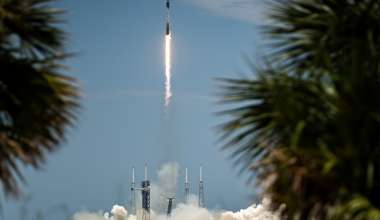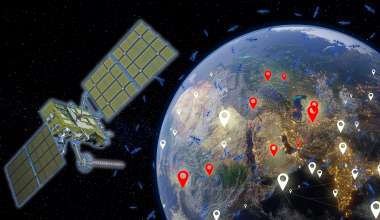New Space Meets National Security Space
In the past, the domestic launch market was dominated by a small number of launch providers catering almost exclusively to a single risk-averse customer: the U.S. government. Today, a growing number of private companies are developing a new generation of rockets with plans to compete for crucial national security missions as well as commercial launch contracts. Before these new rockets can be entrusted to lift a military satellite into space, however, they must undergo rigorous certification. Aerospace is working with these new entrants in the launch market to apply the mission assurance and launch verification processes for which the corporation is known and trusted. Aerospace is also working with the Air Force to ensure that new entrants gain fair access to these missions.
Aerospace is committed to building and nurturing valuable relationships with these innovative companies, while keeping the recipe for mission success. This reinvigoration of the launch industry has ushered in exciting new opportunities for the government as well as the launch providers. The new entrants have been emphasizing innovation and cost savings for all, and the government must continue to nurture these efforts while maintaining high standards for mission success. Amid this exhilarating climate of change, Aerospace is helping to bridge both cultures by imparting the corporation’s counsel and more than 50 years of experience.

Working With New Entrants To Space
For example, Aerospace has been a key member of the certification team for Orbital ATK’s Next Generation Launcher. Aerospace held several detailed technical discussions between the government and Orbital ATK and is closely monitoring the company’s design, development, and test activities. Aerospace also holds regular working groups with Orbital ATK across all relevant technical disciplines.
Also significant, Aerospace has been performing independent verification and validation of the SpaceX Falcon 9 in preparation for the second GPS III launch planned for 2018. In addition, Aerospace continues its rigorous technical and programmatic support of the Falcon 9 Upgrade and the work to certify the Falcon Heavy launch vehicle, which staged a demonstration flight in February 2018.
In preparation for the debut of Blue Origin’s methane-fueled BE-4 engine, Aerospace revamped an engine performance analysis tool to evaluate this and other contemporary engines. The corporation also developed unique laboratory capabilities to test these engines and a rocket engine test standard for new entrant certification.
Meanwhile, Aerospace remains committed to assisting United Launch Alliance in flying out its manifest of Atlas V and Delta IV launches.
Aerospace’s 100-percent launch success rate on national security space payloads since 1999, combined with its objective technical analysis and proven expertise, make the corporation uniquely qualified to bridge the cultures of dynamic entrepreneurs and long-term government planners. It’s Aerospace’s top priority to support the quest to safely and successfully launch national security payloads on new entrant launch vehicles.






